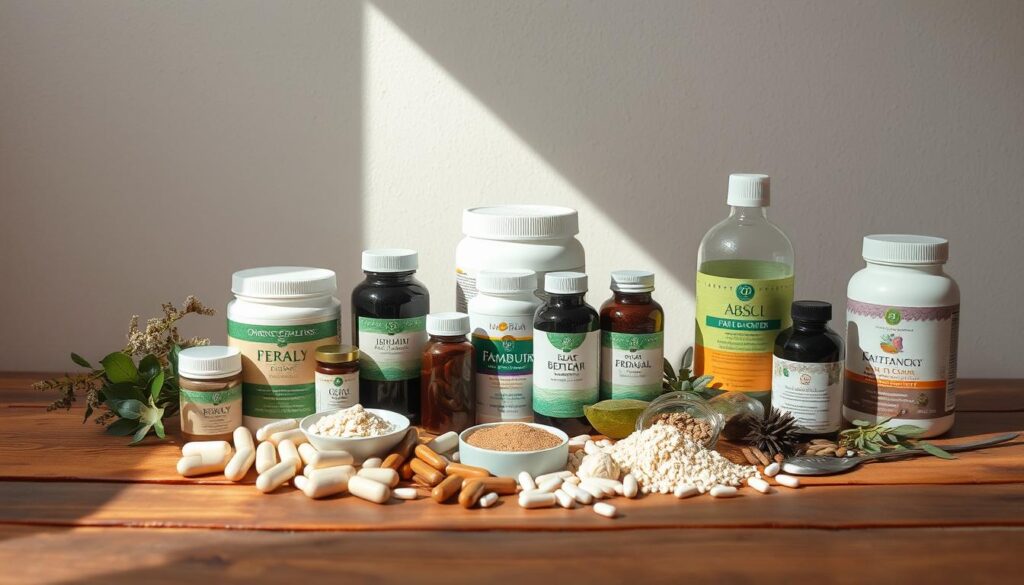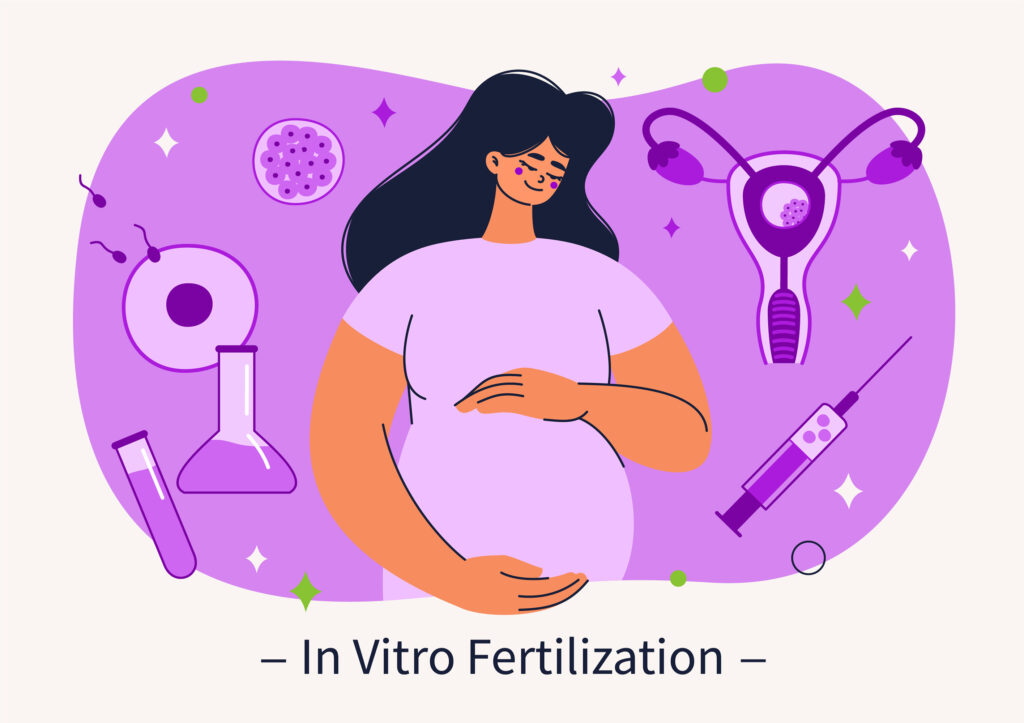How to Get Pregnant- Pregnancy Boosting Tips

Are you struggling to get pregnant and wondering if there are specific strategies that can improve your chances of conception? Understanding fertility and the factors that influence it is crucial for couples trying to have a baby. Various elements, including age, overall health, and lifestyle choices, play significant roles in determining pregnancy success.
By adopting evidence-based fertility-boosting tips, couples can significantly enhance their likelihood of conceiving. This comprehensive guide provides valuable insights into the most effective methods, from understanding your cycle to making informed lifestyle modifications in your pursuit of getting pregnant.
Key Takeaways
- Understanding your fertility cycle is crucial for conception.
- Adopting a healthy lifestyle can significantly improve fertility.
- Timing intercourse correctly can enhance the chances of getting pregnant.
- Both partners should adopt fertility-enhancing habits.
- Certain strategies can reduce the time it takes to conceive.
📞 Get in Touch for a Free Surrogacy Consultation
📱 +91-8800481100 (WhatsApp | LINE | Viber)
📧 neelam@ivfconceptions.com
🌐 www.completesurrogacy.com
Understanding Your Fertility Window- How to get pregnant?
The journey to conception begins with understanding the intricacies of your menstrual cycle and fertility window. For women trying to conceive, grasping the concept of when they are most fertile is crucial. Your fertility window is the period during your menstrual cycle when pregnancy is most likely to occur, typically spanning about 6 days and ending with ovulation.
How to Track Your Menstrual Cycle
Tracking your cycle is fundamental to understanding your fertility. It begins on the first day of your period, considered day one, and helps identify patterns specific to your body’s reproductive rhythm. Women with a standard 28-day cycle typically ovulate around day 14, but cycle length varies significantly among individuals. To track your cycle effectively, you can use various methods such as calendar charting, basal body temperature monitoring, and observing changes in cervical mucus.
By monitoring these indicators, you can better understand your body’s unique rhythm and identify your most fertile days. For instance, cervical mucus becomes thinner, clearer, and more slippery during your fertile days, resembling egg whites when you’re most fertile.
Identifying Ovulation Signs and Symptoms
In addition to tracking your cycle, recognizing the signs and symptoms of ovulation can help pinpoint your most fertile days. Physical ovulation symptoms may include mild cramping on one side (mittelschmerz), increased libido, and slight spotting. Ovulation predictor kits detect the surge in luteinizing hormone (LH) that occurs 24-36 hours before ovulation, providing a reliable indicator of your most fertile days.
For women with irregular cycles, digital fertility monitors can track multiple fertility indicators simultaneously, offering more precise ovulation prediction. By combining these methods, you can gain a more accurate understanding of your fertility window and optimize your chances of conception.
Timing Is Everything: When to Have Sex
When trying to conceive, the timing of sexual intercourse plays a crucial role in increasing the chances of getting pregnant. Couples often wonder about the optimal frequency and timing of sex to enhance their fertility. Understanding the fertile window and how to make the most of it can significantly impact conception rates.
The Optimal Frequency During Your Fertile Window
The fertile window, which includes the five days leading up to ovulation and the day of ovulation itself, is the most critical period for conception. Studies have shown that couples who have sex every day or every other day during this window have the highest rates of pregnancy. Maintaining a frequency of once per day during the fertile window is often recommended, as it provides sufficient sperm without depleting count or quality.
To maximize chances of conception, it’s advisable to begin having intercourse about 3 days before expected ovulation and continue until 1 day after. This strategy takes into account that sperm can survive in the female reproductive tract for up to 5 days, while an egg remains viable for only 12-24 hours after ovulation.
| Intercourse Frequency | Conception Rate |
|---|---|
| Daily | High |
| Every Other Day | High |
| Less Frequently | Lower |
Morning vs. Evening: Does Timing Matter?
Research suggests that the time of day when you have sex may also influence conception chances. Some studies indicate that sperm count and motility tend to be higher in the morning, after a night’s rest. This could potentially give couples a slight advantage if they have intercourse in the morning.
However, it’s essential to maintain a balance and not stress too much about the timing. While morning intercourse might offer some benefits in terms of sperm quality, the overall frequency and timing within the fertile window remain the most critical factors. Couples should aim for a regular and enjoyable sex life throughout the month, rather than focusing solely on the “perfect” moment.
Nutrition Strategies That Boost Fertility
The right foods can significantly impact your fertility journey. A diet rich in essential nutrients not only supports overall health but also plays a crucial role in reproductive well-being. By making informed food choices, you can create a fertile foundation for conception.
Antioxidant-Rich Foods for Egg and Sperm Health
Antioxidants are vital for neutralizing free radicals that can damage both egg and sperm cells. Consuming foods high in antioxidants, such as berries, dark leafy greens, and nuts, can help improve fertility for both partners. These foods support the health of reproductive cells, potentially enhancing the chances of successful conception.
The Power of Omega-3 Fatty Acids
Omega-3 fatty acids are particularly beneficial for fertility. Found in fatty fish, flaxseeds, and walnuts, these healthy fats support reproductive hormone production and may improve egg quality and embryo development. Incorporating omega-3-rich foods into your diet can be a valuable step in boosting fertility.
Protein Sources That Support Conception
Choosing high-quality protein sources is important for fertility. Research suggests that plant proteins and fish may be more beneficial than red meat for women trying to conceive. Including a variety of protein-rich foods like lentils, beans, and fish in your diet can support reproductive health.
Fiber and Complex Carbohydrates
A diet high in fiber and complex carbohydrates can help stabilize blood sugar and insulin levels, which is particularly important for women with PCOS or insulin resistance. Foods like whole grains, fruits, and vegetables are rich in fiber and can contribute to a fertility-friendly diet.
A fertility-focused diet emphasizes whole foods rich in specific nutrients that support reproductive health and hormone balance. The following table highlights key foods and their benefits for fertility:
| Food Group | Examples | Fertility Benefits |
|---|---|---|
| Antioxidant-Rich Foods | Berries, dark leafy greens, nuts | Neutralize free radicals, improve egg and sperm health |
| Omega-3 Fatty Acids | Fatty fish, flaxseeds, walnuts | Support reproductive hormone production, improve egg quality |
| High-Quality Protein Sources | Lentils, beans, fish | Support reproductive health, potentially improve fertility |
| Fiber-Rich Foods | Whole grains, fruits, vegetables | Stabilize blood sugar and insulin levels, support fertility |
By incorporating these nutrient-dense foods into your diet, you can create a supportive environment for conception. A well-planned nutrition strategy is a powerful tool in your fertility journey.
Essential Supplements for Fertility
When trying to conceive, incorporating the right supplements into your daily routine can significantly impact your fertility journey. Supplements can provide essential nutrients that support both fertility and pregnancy.
Prenatal Vitamins and Folic Acid
Starting prenatal vitamins 3-6 months before conception is highly recommended. These vitamins contain higher levels of folic acid and B vitamins, which are crucial for preventing neural tube defects in the early stages of pregnancy. Folic acid supplementation, typically between 400-800 mcg daily, is vital for preventing these defects, which often occur before a woman knows she’s pregnant. Moreover, folic acid may also improve egg quality and implantation rates, making it a key supplement for women preparing for pregnancy.
Iron, Vitamin D, and Other Key Nutrients
Beyond prenatal vitamins, other nutrients play a significant role in fertility. For instance, iron supplements can address deficiencies that may impair ovulation and embryo implantation. Vitamin D deficiency is common and has been linked to fertility challenges; supplementation may improve ovarian function and pregnancy outcomes.
Additionally, Coenzyme Q10 (CoQ10) has gained attention for its potential to improve egg quality in women of advanced reproductive age by supporting mitochondrial function.
Male partners can also benefit from certain supplements. Antioxidant supplements like vitamin C, vitamin E, and zinc may improve sperm parameters and DNA integrity. When selecting supplements, it’s crucial to choose pharmaceutical-grade products tested for purity. Always consult with a healthcare provider before starting any supplement regimen to ensure safety and efficacy.
- Prenatal vitamins provide essential nutrients for early pregnancy development.
- Folic acid is crucial for preventing neural tube defects and may improve egg quality.
- Iron and Vitamin D supplements can address deficiencies that impact fertility.
- CoQ10 may improve egg quality in women of advanced reproductive age.
- Antioxidant supplements can improve sperm parameters in male partners.
Male Fertility-Boosting Tips
Male fertility is a critical component of the conception process, and lifestyle changes can significantly impact sperm quality. When trying to conceive, it’s not just about the woman’s health; the man’s fertility plays a crucial role too.
Male fertility factors contribute to approximately 40% of all infertility cases, making your partner’s reproductive health equally important when trying to conceive. Fortunately, there are several strategies men can adopt to boost their fertility.
Sperm-Friendly Diet and Supplements
A diet rich in antioxidants, zinc, and omega-3 fatty acids can support optimal sperm count and motility. Foods such as tomatoes, berries, walnuts, oysters, pumpkin seeds, and fatty fish are beneficial. Additionally, supplements like vitamin C, vitamin E, CoQ10, zinc, and L-carnitine may benefit male fertility, though they should be taken under medical guidance.
- Antioxidant-rich foods help protect sperm from damage.
- Zinc sources support testosterone production and sperm health.
- Omega-3 fatty acids promote healthy sperm membranes.
Lifestyle Habits That Affect Sperm Quality
Lifestyle choices significantly impact sperm quality. Regular moderate exercise supports healthy testosterone levels and sperm production. However, excessive endurance training may temporarily reduce sperm quality. Managing stress through techniques like meditation or yoga can also benefit male fertility by maintaining healthy testosterone levels and reducing oxidative stress.
Avoiding Heat and Other Sperm Hazards
Maintaining optimal testicular temperature is crucial for sperm production. Men should avoid hot tubs, saunas, and tight-fitting underwear to preserve sperm count and quality. Additionally, keeping cell phones away from the groin area may protect sperm from electromagnetic radiation.
- Avoiding heat sources like hot tubs and saunas can help.
- Wearing loose-fitting clothing can improve sperm health.
- Limiting exposure to electromagnetic radiation from cell phones is advisable.
By adopting these male fertility-boosting tips, men can significantly improve their sperm quality and contribute to a healthier conception process. It’s a collaborative effort between partners to create a fertility-friendly environment.
What to Avoid When Trying to Conceive
As you embark on your journey to conceive, understanding what to avoid can significantly impact your fertility health. Certain lifestyle choices and environmental exposures can hinder your progress, making it crucial to be aware of the factors that can affect your chances of conception.
Alcohol, Caffeine, and Smoking
Consuming alcohol can have a negative impact on fertility. Research has shown that even moderate drinking can reduce your chances of conception. For women, consuming more than 12.5 grams of alcohol per day can significantly impact fertility.
To put this into perspective, a standard drink in the United States contains about 14 grams of alcohol. If you’re trying to conceive, minimizing or eliminating alcohol consumption is recommended, as it affects not only female hormone levels but also male sperm production. Moreover, since there’s no established “safe” level of alcohol during pregnancy, avoiding it entirely while trying to conceive is the safest option.
Caffeine intake should also be limited when trying to conceive. Consuming more than 200mg of caffeine daily, approximately the amount found in one 12oz cup of coffee, has been associated with longer times to pregnancy. Therefore, it’s advisable to limit your caffeine intake to support your fertility health.
Smoking has profound negative effects on fertility. It damages eggs, reduces ovarian reserve, and increases the risk of miscarriage. Quitting smoking can improve fertility within one year. Moreover, secondhand smoke exposure also impacts fertility, making it essential for both partners and household members to maintain a smoke-free environment.
Environmental Toxins and Chemicals
Exposure to environmental toxins like BPA, phthalates, and pesticides can disrupt hormonal balance and reproductive function. Choosing organic foods and BPA-free products may support fertility health. It’s also important to evaluate and minimize workplace exposures to chemicals, radiation, or heavy metals when trying to conceive. Using proper protective equipment when exposure cannot be avoided is crucial.
Household cleaning products with harsh chemicals can be replaced with natural alternatives to reduce reproductive toxin exposure during the conception period. Additionally, certain medications can interfere with fertility or pose risks during early pregnancy; it’s essential to consult with your healthcare provider about all prescription and over-the-counter medications you’re taking.
By being mindful of these factors and making informed choices, you can improve your chances of conception and support your overall fertility health. Understanding the effects of these substances and taking steps to minimize exposure can make a significant difference in your journey to conceive.
Special Considerations for PCOS and Other Conditions
Certain health conditions, such as PCOS, can affect fertility, but with the right approach, women can improve their chances of conception. PCOS is a leading cause of infertility due to irregular ovulation, affecting up to 10% of women of reproductive age.
Dietary Approaches for PCOS
Women with PCOS often benefit from a lower-carbohydrate diet that emphasizes complex carbohydrates with low glycemic impact. Research indicates that managing carb intake can provide beneficial effects on some aspects of PCOS. A lower-carb eating plan, where less than 45% of calories come from carbohydrates, is generally recommended. For example, if you eat around 1,800 calories a day, that translates to about 200 grams of carbs.
- A lower-carbohydrate diet can improve insulin sensitivity and hormone balance.
- Eating a substantial breakfast may help with female fertility, particularly if you have PCOS.
- Weight loss of just 5-10% can significantly improve ovulation frequency in women with PCOS who have excess weight.
Managing Other Fertility-Affecting Conditions
Other conditions like endometriosis, thyroid disorders, and autoimmune diseases can also impact fertility. Anti-inflammatory diets rich in omega-3 fatty acids and antioxidants may help manage endometriosis symptoms and potentially improve fertility outcomes. Proper testing and management of thyroid disorders before conception are essential, as even subclinical hypothyroidism can interfere with ovulation and implantation.
For women with unexplained infertility, addressing potential undiagnosed issues like mild endometriosis or subclinical thyroid dysfunction may be beneficial. Working with specialists to optimize disease control before conception can improve outcomes.
When to Seek Professional Help
For many couples, getting pregnant is a journey that requires patience and the right guidance. While most couples succeed in getting pregnant within a year of trying, knowing when to seek professional help can prevent unnecessary delays in addressing potential fertility issues.
Signs It’s Time to Consult a Fertility Specialist
If you’re under 35, it’s generally recommended to consult a fertility specialist after one year of trying to conceive without success. However, women aged 35-40 should seek help after six months, and those over 40 after just three months. Certain conditions warrant immediate consultation, regardless of the duration of trying. These include irregular or absent periods, a history of pelvic inflammatory disease, known endometriosis, or previous abdominal/pelvic surgery. Male partners with known issues such as undescended testicles, previous cancer treatment, or trauma to the genital area should also seek evaluation.
| Age | Recommended Time to Seek Help |
|---|---|
| Under 35 | After 1 year of trying |
| 35-40 | After 6 months of trying |
| Over 40 | After 3 months of trying |
What to Expect at a Preconception Checkup
A preconception checkup is a comprehensive visit that includes a medical history review, physical examination, and screening for infections or conditions that could affect pregnancy. Blood tests may check hormone levels, thyroid function, vitamin D status, and immunity to diseases like rubella and chickenpox.
Your doctor may recommend genetic carrier screening and discuss any medications that need adjustment before getting pregnant. Fertility testing may include ovulation assessment, evaluation of fallopian tube patency, and semen analysis for male partners.
Conclusion: Your Personalized Fertility Plan
By understanding and implementing the right fertility strategies, you can significantly improve your chances of having a baby. Creating a personalized fertility plan involves several key steps.
- Track your cycle and identify your fertile window to time intercourse effectively.
- Adopt nutritional adjustments that support fertility at least three months before trying to conceive.
- Implement lifestyle modifications, including appropriate exercise and stress management.
- For male partners, focus on sperm health through diet and lifestyle changes.
By following these steps and being patient, you can enhance your chances of get pregnant and starting a family. If pregnancy doesn’t occur within the expected timeframe, consider seeking professional guidance to address any underlying issues.
If you’d like to learn more about IVF, Egg Donation, or surrogacy services globally, check out the rest of our website at Complete Surrogacy. We offer legally secure and affordable surrogacy consulting services for FREE.
Our team has over 15 years of experience facilitating surrogacy arrangements, egg donation, and serving as an advocacy resource for infertile couples and LGBTQ individuals seeking to build families.
📞 Get in Touch for a Free Surrogacy Consultation
📱 +91-8800481100 (WhatsApp | LINE | Viber)
📧 neelam@ivfconceptions.com
🌐 www.completesurrogacy.com
FAQ on how to get pregnant
How long does it typically take to conceive?
For most couples, conception occurs within a year of regular, unprotected sex. However, this timeframe can vary depending on factors such as age, overall health, and frequency of intercourse.
What is the best way to track ovulation?
You can track ovulation by monitoring your menstrual cycle, using ovulation predictor kits, or observing physical symptoms like changes in cervical mucus and basal body temperature.
Does diet really impact fertility?
Yes, a balanced diet rich in essential nutrients can support fertility in both men and women. Foods high in antioxidants, omega-3 fatty acids, and fiber can be particularly beneficial.
Can lifestyle factors like exercise and stress affect fertility?
Regular exercise and stress management can positively impact fertility, while excessive exercise or chronic stress can have negative effects. Finding a balance is key.
Are there any supplements that can boost fertility?
Certain supplements like folic acid, iron, and vitamin D can support fertility. However, it’s essential to consult with a healthcare provider before adding any supplements to your regimen.
How does age affect fertility?
Age is a significant factor in fertility, particularly for women. As women age, the quality and quantity of their eggs decline, making conception more challenging.
Can environmental toxins impact fertility?
Exposure to certain environmental toxins and chemicals can negatively affect fertility in both men and women. Minimizing exposure to these substances can help support reproductive health.
When should I seek professional help if I’m having trouble conceiving?
If you’re under 35 and have been trying to conceive for a year without success, or if you’re over 35 and have been trying for six months, it’s a good idea to consult a fertility specialist.
More Resources:
- American Society for Reproductive Medicine (ASRM): https://www.asrm.org/
- The American Infertility Association (AIA): https://resolve.org/
- Family Equality Council: https://www.familyequality.org/
- National Center for Lesbian Rights (NCLR): https://www.nclrights.org/
- https://www.goodrx.com/conditions/fertility/how-to-afford-surrogacy

Author Bio: Neelam Chhagani is an International Surrogacy Expert with 15 years of experience in the fertility and surrogacy domain. As the founder of IVF Conceptions and Complete Surrogacy, she has guided over 4,000 intended parents worldwide on their surrogacy journey to parenthood. Recognized as a trusted authority, she specializes in holistic infertility solutions and third-party reproduction consulting.
Holding an MA in Counselling Psychology and a PGD in Mental Health, Neelam is a proud member of the European Fertility Society (EFS) and the European Society of Human Reproduction and Embryology (ESHRE). She is also a leading surrogacy blogger, providing valuable insights into ethical and practical surrogacy solutions.
Since 2010, committed to supporting ALL family types, Neelam has been passionate about helping intended parents grow their families with compassion, integrity, and a focus on secure and affordable surrogacy options Globally.
Learn more about Neelam:
https://www.ivfconceptions.com/neelam-chhagani-surrogacy-consultant/
https://www.linkedin.com/in/neelam-chhagani-92892229/



















I was introduced to Neelam by a friend who worked with Neelam for surrogacy. Neelam is absolutely wonderful. I am a single male and the journey to fatherhood is not that easy. Neelam connected me to a program ideal for my circumstances. She was with me throughout the pregnancy providing advice and guidance along the way. I am so grateful I found her and am thrilled today that I have a beautiful daughter. I highly recommend Neelam to anyone who is on a journey to become a parent. Having a child has changed my world for the better. I wish others success with their own journey and recommend you connect with Neelam to find a path that is best for you.
SA (USA)